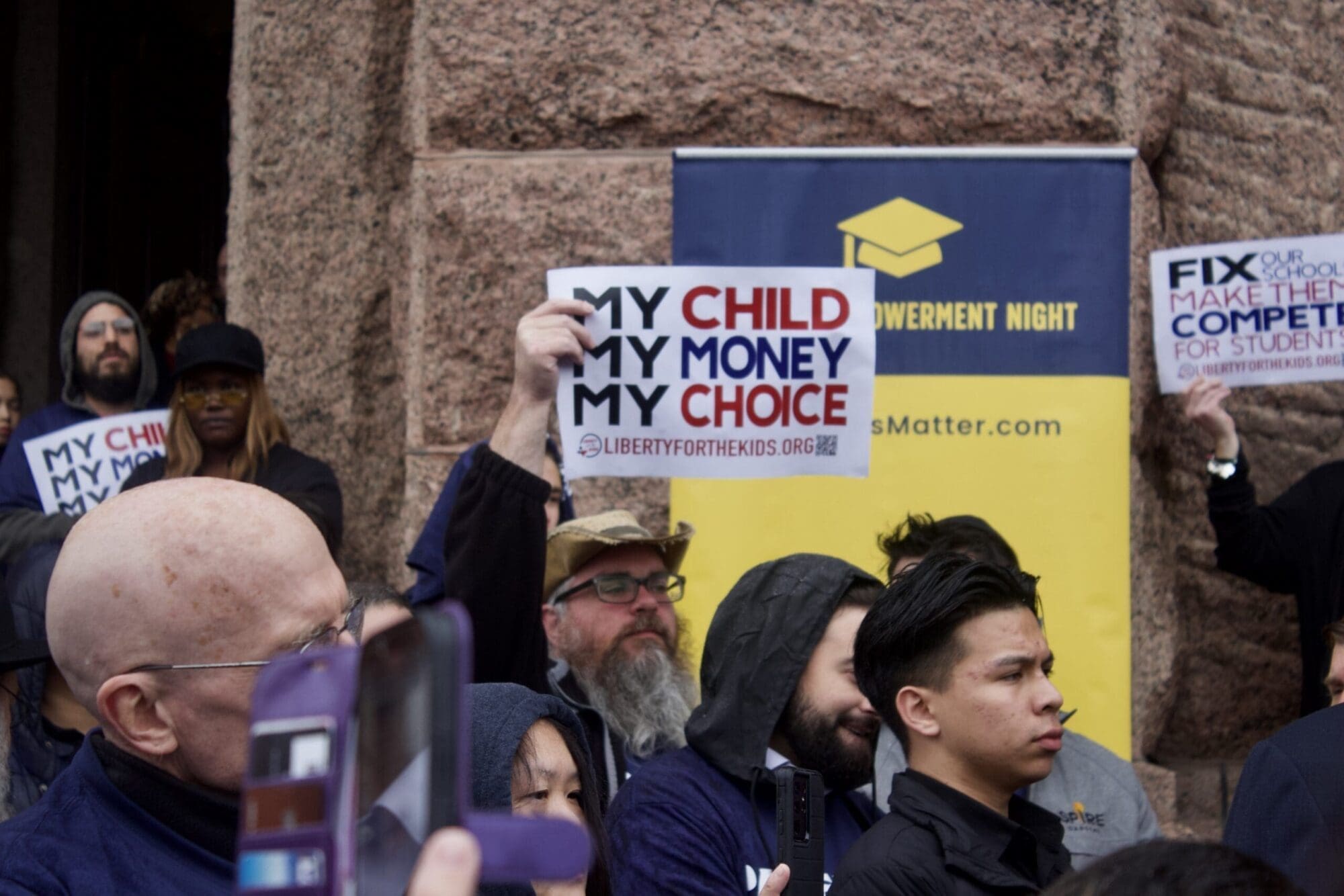With mass turnover in the Republican primary in favor of pro-school choice candidates, Gov. Greg Abbott and Lt. Gov. Dan Patrick’s plan to prioritize school choice again in 2025 may face less pushback.
School Choice
While Texas officials said they would prioritize passing school choice in 2023, efforts to accomplish the goal flopped. The Republican-majority House rejected school choice each time it was brought to the floor for a vote with a minority of Republicans joining with Democrats to block the plans.
After a successful primary election for pro-school choice candidates, Abbott and Patrick doubled down on their pledge to move the needle on school choice.
“Since 2015, the Senate has passed school choice five times. It died in a Republican-controlled House each time. That is unacceptable and inexcusable,” Patrick wrote in a post-election statement. “With an expanded Republican majority in the Texas House, there is no reason Texas students should be left behind.”
This November, State Rep. Briscoe Cain (R-Deer Park) filed school choice legislation that would allow “state funds to follow students to the educational institutions that best meet their needs.”
Even with lawmakers poised to potentially approve school choice—allowing parents to pick the best educational fit for their children whether public, private, charter, or home school—the majority of Texas students will remain in government-run schools.
Bluebonnet Learning Curriculum
A new state-funded curriculum created at the behest of the Legislature by the Texas Education Agency was approved by the State Board of Education this year.
Bluebonnet Learning is an Open Education Resource, which means it is owned by the state, free to everyone, and can be modified over time.
The learning materials are for K-5th grade, teach reading and math, and incorporate Biblical lessons including the Golden Rule and Good Samaritan.
The SBOE members approved the material for use beginning in August 2025.
School districts will decide whether or not they use Bluebonnet Learning. Districts that decide to use the materials will receive an incentive of $60 per student.
Legislation to Watch
Several measures have been filed for the upcoming session to increase transparency in government schools and protect the children within them.
House Bill 1551 filed by incoming State Rep. Hillary Hickland (R-Belton) requires public school districts and open-enrollment charter schools to notify parents or guardians of enrolled students when a school employee is charged with certain criminal offenses.
Under House Bill 1014 by State Rep. Steve Toth (R-The Woodlands), multi-occupancy bathrooms would be designated for use based on biological sex.
Senate Bill 87 by State Sen. Bob Hall (R-Edgewood) would amend the education code to state that “Before a student may be provided with human sexuality instruction, a school district must obtain the written consent of the student’s parent.”
Grassroots parental rights group Texas Education 911 has been advocating for the creation of an office of inspector general. One version of the proposal, House Bill 1456, would create an office of inspector general at the Texas Education Agency to investigate complaints made by parents of children enrolled in public schools. However, the legislation is not quite up to par with what Texas Education 911 is seeking.
An additional issue that may come up this session is excessive superintendent salaries and “golden parachute” payouts. Fiscal responsibility advocates have pushed for lawmakers to enact a limitation on salaries.
The 89th Legislative Session will begin on January 14.





